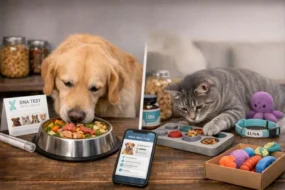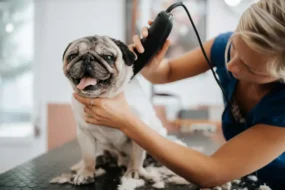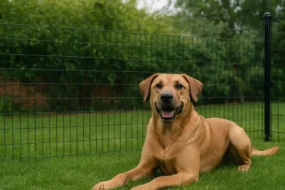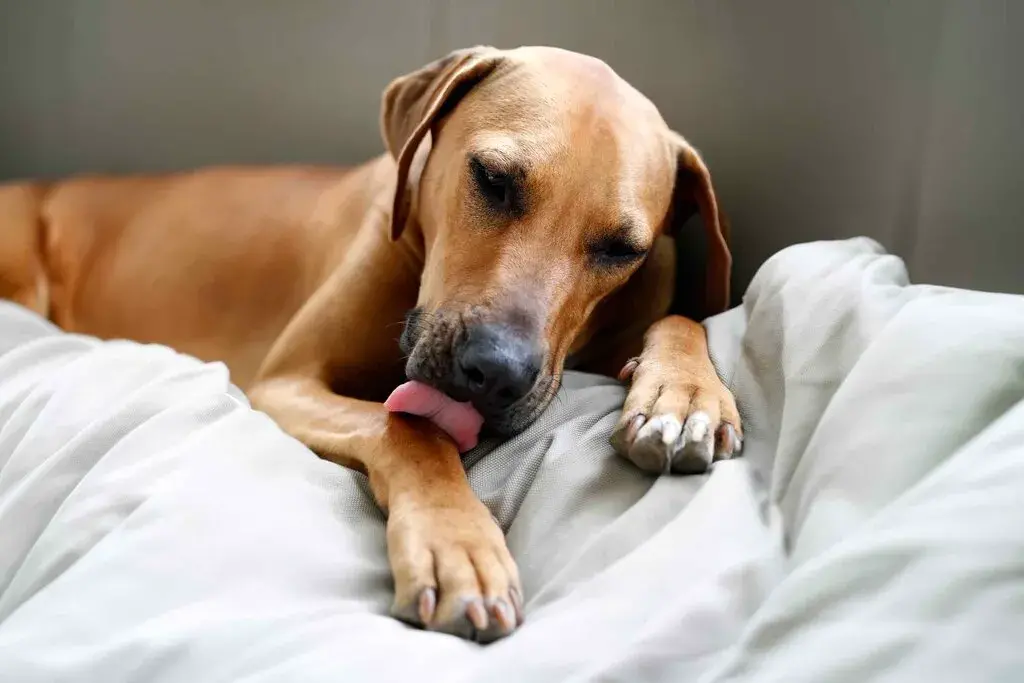
Have you ever noticed your dog constantly licking its paws? There could be a few reasons behind it. Injuries, skin problems, environmental factors, parasites, or food allergies might cause it.
It’s normal for dogs to lick their paws sometimes, especially after walks or when they’ve been in dirty places. But if you see observe dog going at it, something more might be happening.
Dogs can, at times, as a part of their grooming process lick their paws. Your dog can clean its paws sometimes, even if it is not very interested in grooming itself. It’s possibly nothing to worry about if you just observe them doing it sometimes.
However, it is abnormal when dogs licks their paws excessively or with great intensity. It can indicate that there is a problem with their conduct or health. If you’re worried, the first thing to do is see whether their paws are hurting. As with wounds, dogs will mostly lick their paws aggressively if they are hurting, itchy, or irritated.
1. Injuries
It is possible that your dog has an injury or something lodged in its paw that is causing it to lick suddenly. It’s possible that they walked on jagged, heated pavement or painful ice melt. Or maybe an animal bit them, or an insect stung them.
Sometimes, their paws are merely trapped with something, and they need assistance to remove it. Splinters and grass blades might lodge in their paws and cause irritation.
2. Growths
A cyst or tumor forming in one paw might be the reason your dog is licking it so much. Additionally, it can be possible that they have an internal injury or arthritis that is invisible to the naked eye in their paw.
It’s more likely that your dog is concentrating on one paw due to an injury, a growth, or something lodged. They may even begin to limp. But keep in mind that many paws may experience similar problems simultaneously.
3. Allergies
Allergies are a major factor in why dogs often lick their paws. They lick their paw pads to relieve itching or irritation caused by allergies. Many dogs suffer from allergies that cause itching on their paws, particularly in response to specific foods or environmental allergens.
4. Infections
Dogs sometimes have paw infections brought on by bacteria, fungus, or yeast, in which case they should see the veterinarian. Allergies or unknown causes may cause these illnesses. Dogs who lick their paws often leave them moist, which increases the risk of bacterial or yeast infections.
Also, your dog may lick its paws frequently if it has really itchy paws due to fleas, mange, or hookworms.
5. Behavioral Concerns
Though less often, behavioral reasons for all that licking might exist if your dog’s paws seem healthy. Perhaps they are simply bored, or perhaps they are nervous or agitated.
It can begin out of boredom and develop into a reassuring or pleasant habit. Dogs may develop severe compulsive behaviors that cause them to repeatedly lick their paws.
How to Handle Your Dog’s Paw Licking
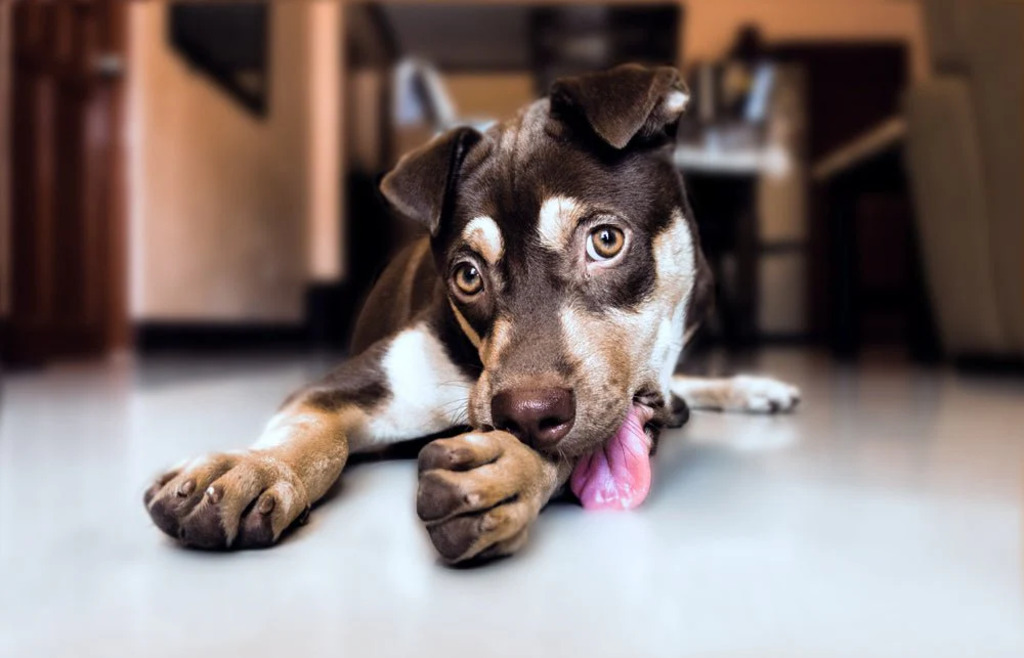
Start by thoroughly examining your dog to see if it seems to be licking its paws all the time. Examine every detail, including the tips and soles of their feet, the crevices between their toes, and their toenails. Look out for anything unusual, such as wounds, edema, inflammation, or an odd scent. Treat them with first aid if necessary if anything doesn’t seem right. To maintain the health and cleanliness of their paws, you may also use a safe paw cleaner for dogs.
Remember that excessive licking may cause rusty stains to appear on the fur around their paws, particularly on light-colored fur. Staining indicates that they are licking often.
If your dog licks paws excessively, it’s a good idea to get in touch with your vet even if the paws seem OK to you. Before attempting to address any behavior problems, your veterinarian may examine you for any health concerns.
Remedy for Paw Licking
Your dog’s vet will examine it and discuss its medical history with you. Based on what they discover, they will next suggest therapies. If your pet has discomfort or an infection, your veterinarian may recommend sprays, foot soaks, or other therapies.
If your dog has a bacterial illness or a yeast infection, they may also recommend antifungal medications or antibiotics. Additionally, your dog may need surgery to correct whatever they uncover, such as a tumor or foreign object.
If the issue with your dog is more complex, your veterinarian can recommend a specialist to you, such as a surgeon or a specialist in skin issues.
If you have a dog licking paws excessively and there is no medical explanation, there may be a behavior problem.
Home Remedies Licking Paws
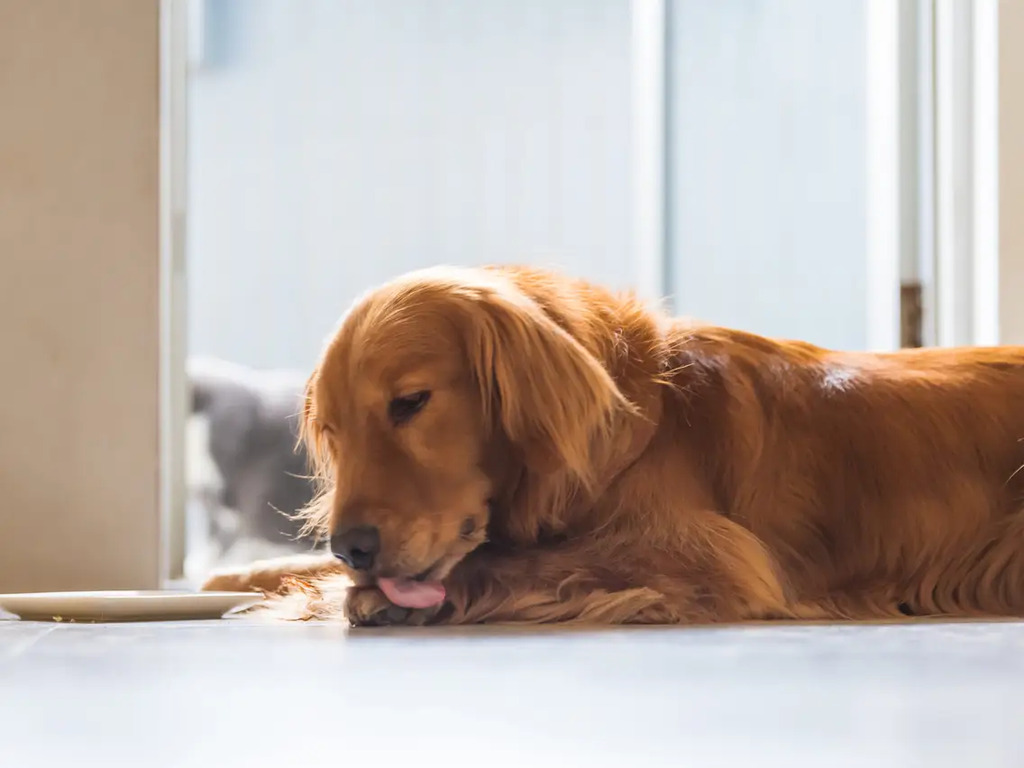
It’s advisable to see your veterinarian before attempting any at-home treatments for your dog’s paw issues. Certain over-the-counter remedies may not be the best option and may potentially exacerbate the condition.
The following are some solutions to consider, but always see your veterinarian first:
- For dry or cracked paws: Apply paw balm or coconut oil on your pet’s dry or cracked paws to help soften them.
- For yeast infections: To treat yeast infections, combine water and apple cider vinegar. Soak the paws for about ten minutes, then thoroughly rinse and dry them.
- For itchy paws: To relieve itching paws, pulverize some plain oats, combine them with some warm water, and soak them for ten minutes or so. After that, rinse and pat dry.
Behavioral Solutions
If your veterinarian indicates there isn’t a medical issue, it might be behavioral in nature. One strategy to cope with it is to keep your dog occupied. Give them toys to play with, go on more walks with them, and spend more time with them.
While you shouldn’t reward them for licking, try not to chastise them either. They may stay occupied and attentive with toys that solve puzzles and distribute food.
Determine your veterinarian again to determine if there are any other causes or remedies if these tips don’t help. You may need to attempt some behavior methods if your dog continues to lick and there isn’t a health problem. You may get guidance from a behaviorist or dog trainer.
How to Prevent Your Dogs From Licking Paws
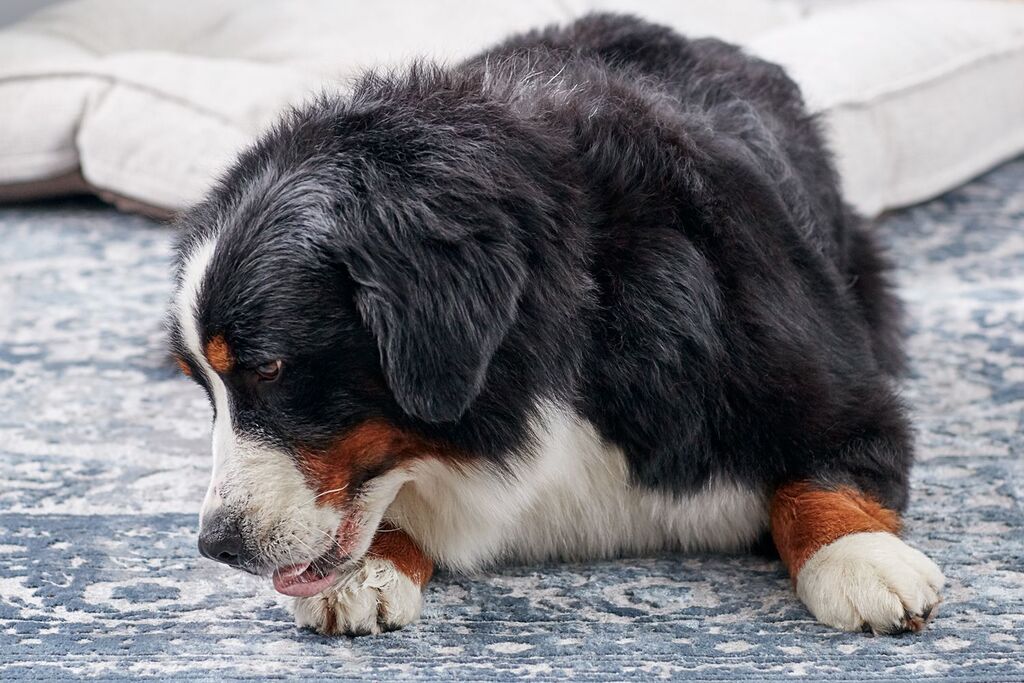
Maintaining the condition of your dog’s feet and skin is essential to preventing them from licking their paws. When they need a wash, give them one and make sure their nails are short. Frequently check their paws, particularly after they have been outdoors.
Avoid taking your dog for walks during extreme heat or cold. To further protect your dog from harsh weather, you may want to apply paw balms or dog boots.
Additionally, remember to take your dog for routine checkups at the veterinarian. Get in touch with your veterinarian as soon as you see them licking their paws often.
In Case You Missed It!








